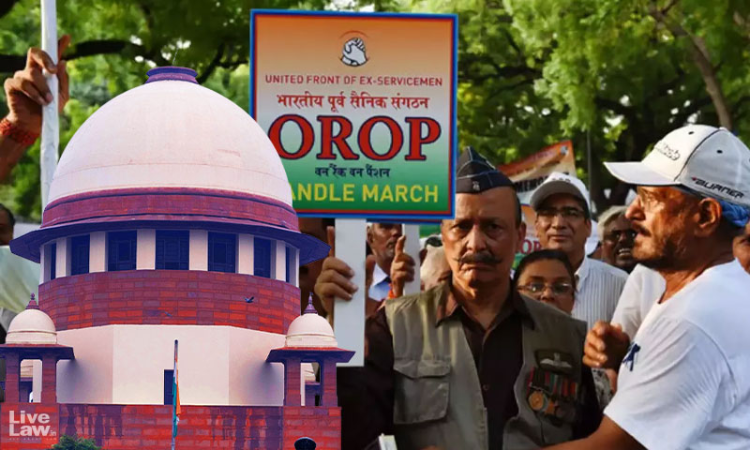OROP : Supreme Court Starts Hearing Ex-Servicemen's Plea For 'One Rank One Pension'
Shruti Kakkar
15 Feb 2022 7:13 PM IST

During the hearing, the Court asked the Centre why the revision was fixed at 5 years and why can't it be done annually.
Next Story


